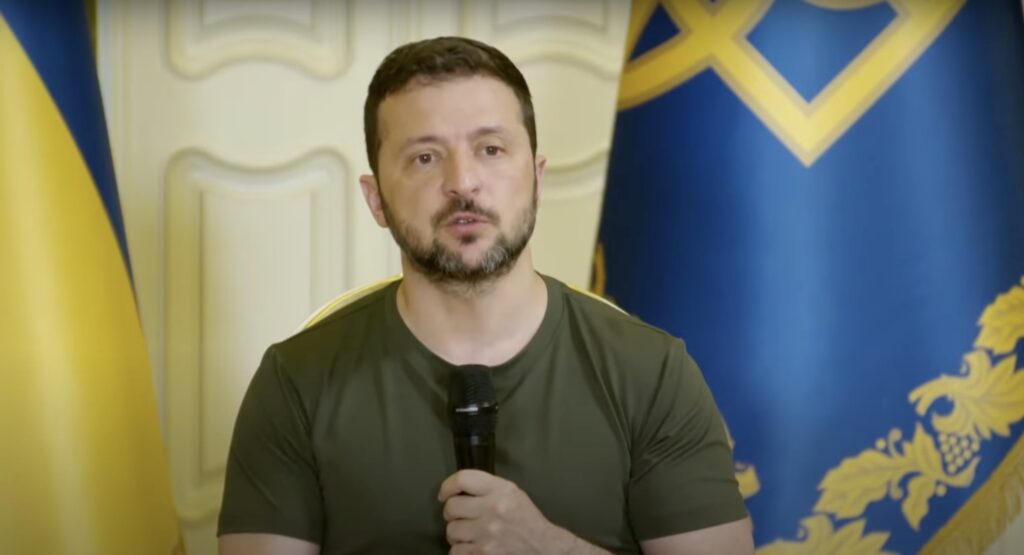Zelenskyy: Ukraine develops own long-range weapons amid Western approval hesitation to deep strike Russia
President Volodymyr Zelenskyy said that striking with long-range weapons inside Russia is still an “unpopular decision" among the allies and that’s why Ukraine is bolstering its own deep-strike capabilities.


During a press conference in Kyiv, Ukraine’s President Volodymyr Zelenskyy indicated some positive developments in the country’s efforts to gain permission for long-range strikes on Russian territory using West-provided weapons.
This comes as the US and some other allies allowed Ukraine to strike Russia near the Ukrainian border but not deep into its territory, limiting Ukrainian ability to hit critical Russian infrastructure and air bases used to launch attacks on Ukrainian cities.
“We have begun to receive some positive signals on the use of long-range things: some,” Zelenskyy stated.
He emphasized the strategic importance of being able to retaliate against the source of Russian attacks.
“There is a point from which a rocket or a corresponding bomb flies out, and we understand where it’s coming from, and it’s unfair that we can’t respond to where it came from,” he explained.
Zelenskyy noted Ukraine has been developing its own deep-strike capabilities, including drones, in response to the delays and will use its own weapons if the allies do not grant full permission.
Head of Ukraine’s Presidential Office, Andriy Yermak, emphasized that lifting restrictions on weapon use within Russian territory could be a “game-changer” in the war.
Despite some progress, Zelenskyy acknowledged that “striking with long-range weapons in Russia is still an unpopular decision” among allies. He stressed the need for continued advocacy on this issue.
Poland’s interception of Russian missiles
Earlier this month, Poland agreed to consider a Ukrainian proposal to intercept Russian missiles over Ukraine, which briefly enter Polish airspace before targeting Ukraine. However, they need NATO approval first.
Zelenskyy explained that the proposal aimed to safeguard Ukrainian natural gas facilities located close to Poland’s border, which are used by various European nations.
In response, NATO Secretary General Jens Stoltenberg rejected this idea for Poland to intercept Russian missiles over Ukraine, stating that such actions would involve NATO directly in the Russo-Ukrainian conflict.
“NATO’s policy is unchanged — we will not be involved in this conflict,” Stoltenberg said.
Weapons provided, but not enough
During a press conference, Zelenskyy also expressed gratitude for the F-16 fighter jets being donated by Norway, Denmark, Belgium, and the Netherlands but highlighted the need for more aircraft and accelerated training.
“We need to increase the number of jets we’re getting shortly, not in three or five years,” he said.
Earlier, he stated that Ukraine needs 128 F-16 fighter jets to effectively counter Russia’s daily deployment of 300 aircraft against Ukraine, while Dutch Defense Minister Kajsa Ollongren announced the approval to export 24 F-16 fighters to Ukraine.
On air defense, Zelenskyy noted that while allies have promised to send more systems, the current commitments fall short of Ukraine’s needs.
At the NATO summit, allies committed to delivering five new air defense batteries to Ukraine, while the country needs 25 Patriot missile defense systems to protect Ukraine from Russian aerial attacks.
Related:
- US limits Ukraine’s strike range to prevent broader conflict, says Pentagon
- Yermak: lifting weapon restrictions deep within Russian territory would be a game-changer
- No change in US weapon restrictions for Ukraine after Russia’s attack on Kyiv hospital, Kirby says
- The Telegraph: Hitting military bases inside Russia is fair, say Ukrainian soldiers



